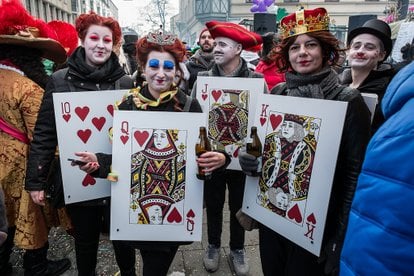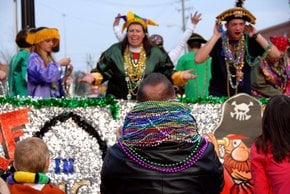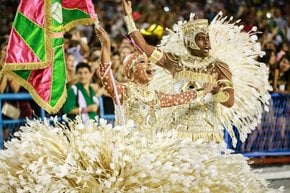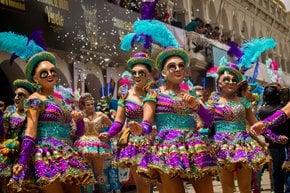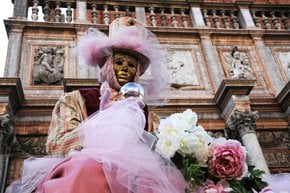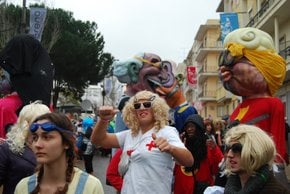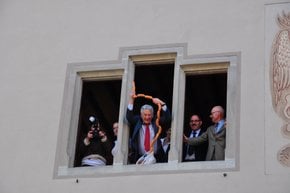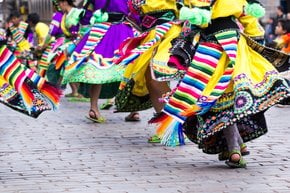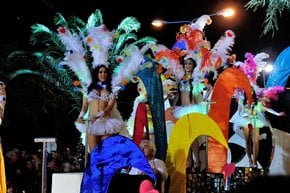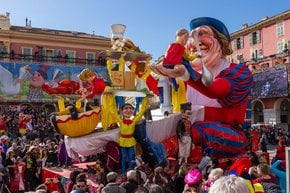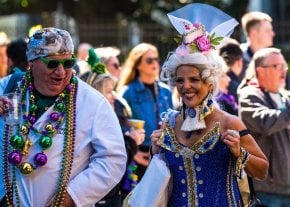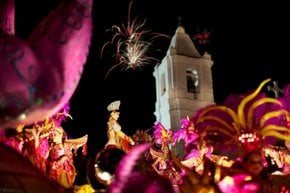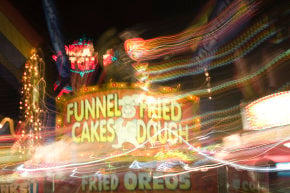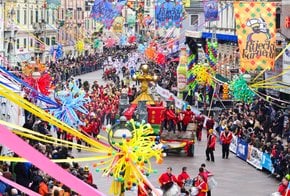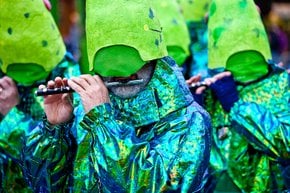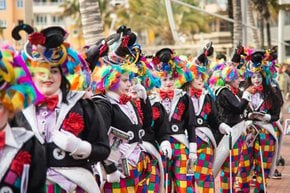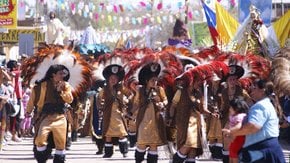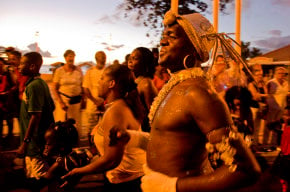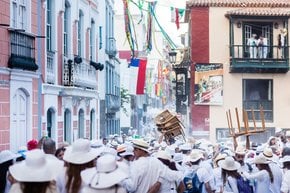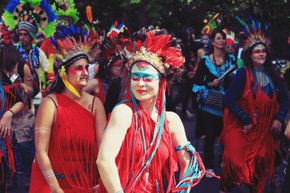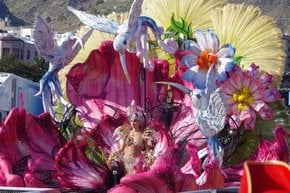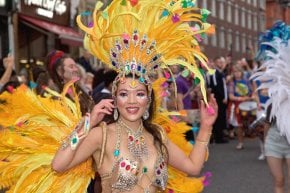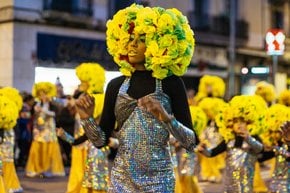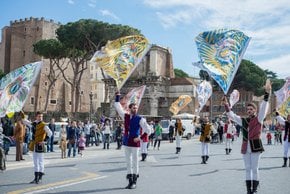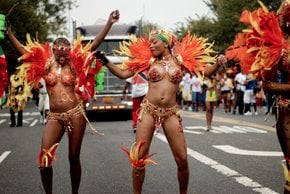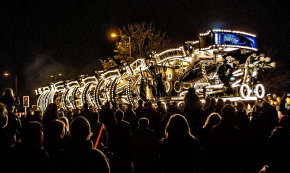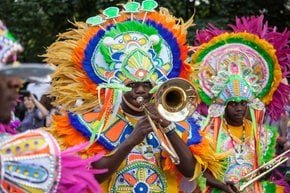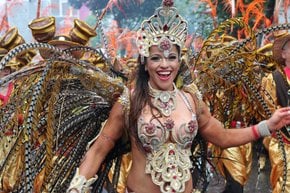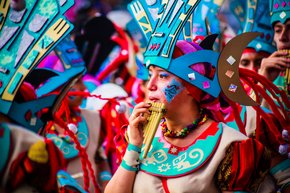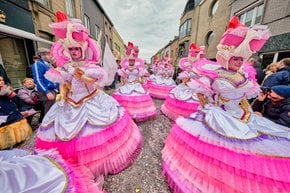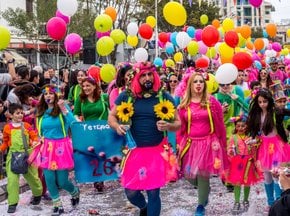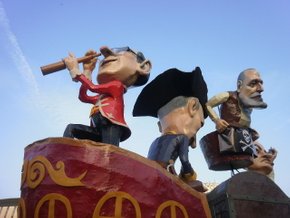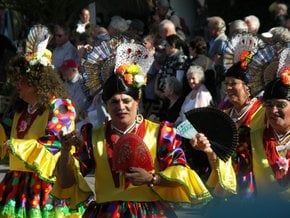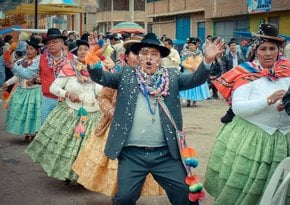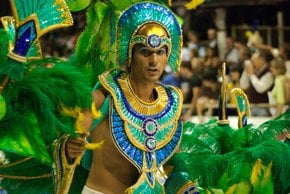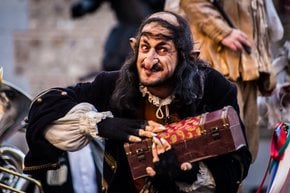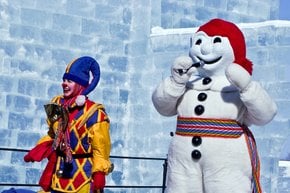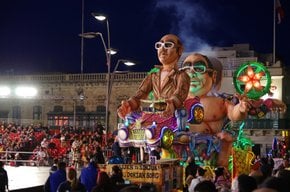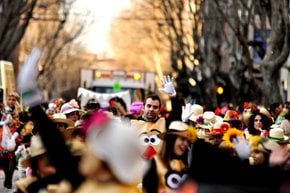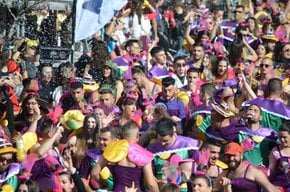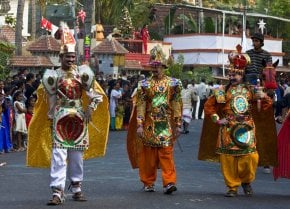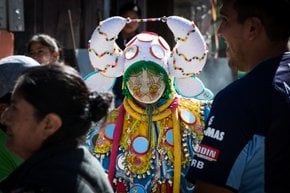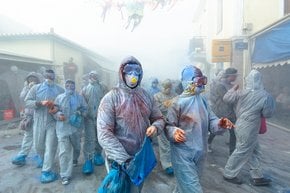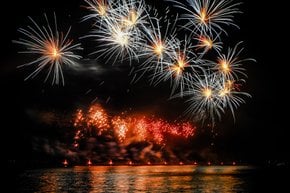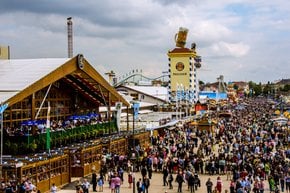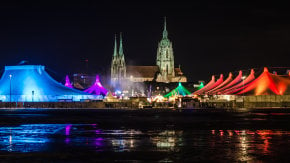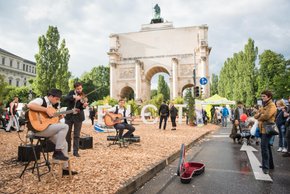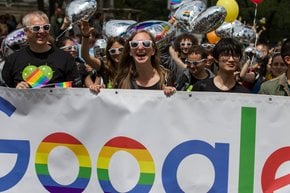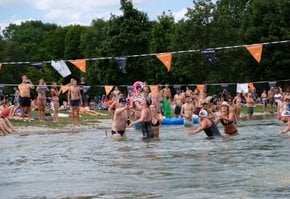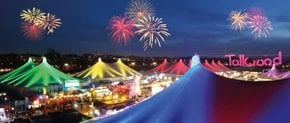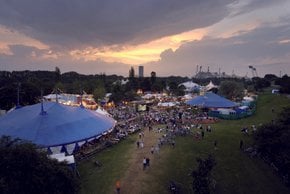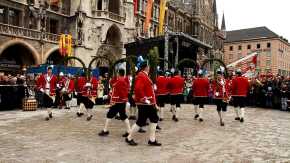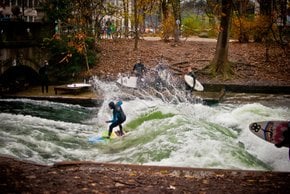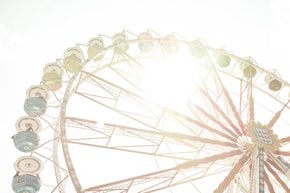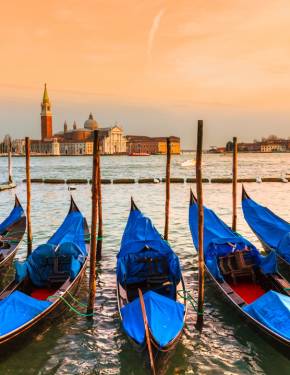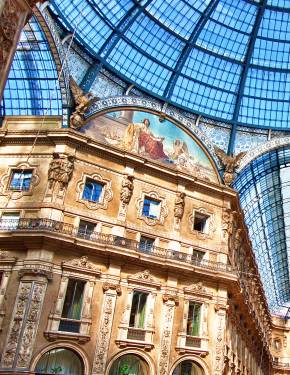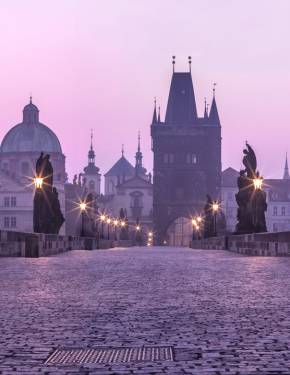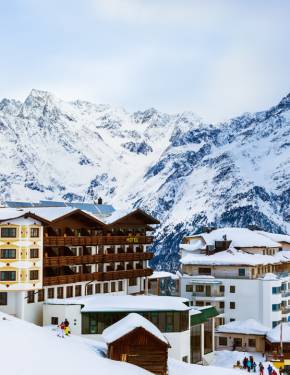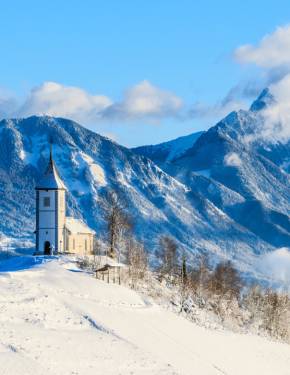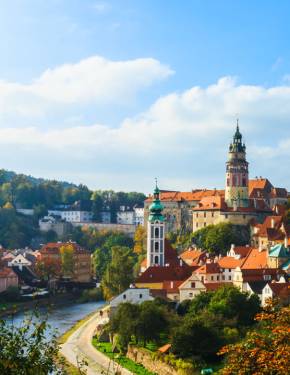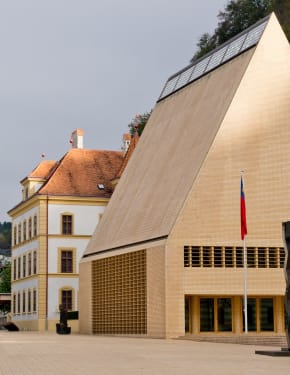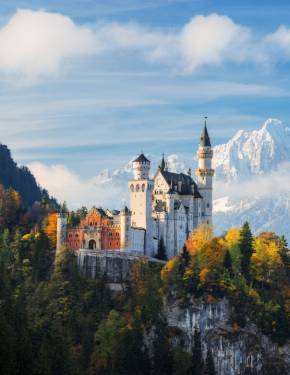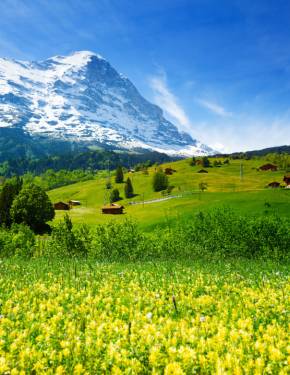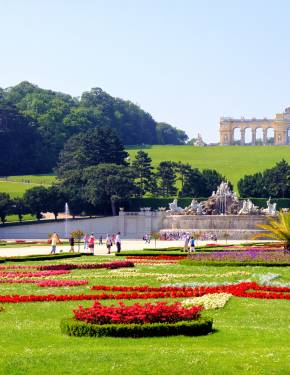Munich Carnival, or Fasching 2025
Wild celebrations, colorful costumes, parades, and performances create an unforgettable atmosphere all around the city
Dates: February 23–March 4, 2025
The Munich Carnival, or Fasching, is a week-long celebration of lively events and parties that starts well before the main festivities. In November, locals elect a Prince and Princess of Narshala, the symbolic "kingdom of fools" that exists during the carnival season. The highlight of the "crazy season" is Shrove Tuesday, featuring events like the Damische Ritter parade, the street carnival "München narrisch," and the iconic market women's dance. The festivities include masquerade balls, costume parties, and vibrant parades, making it a colorful and dynamic celebration.
Munich Carnival Parade (February 23, 2025)
The Fasching season in Munich kicks off with the vibrant Carnival Parade of Damische Ritter, or "silly knights." This lively procession winds through parts of Munich's pedestrian zone, led by "Duke Kasimir" on his grand castle float. Alongside the knights, the parade features a colorful array of participants, including garden gnomes, unicorns, costumed dance troupes, brass and drum bands, and festively decorated carriages. Numerous groups, including music bands, carnival societies, and historical clubs, join the parade, creating a dynamic spectacle. Mayor Verena Dietl, dressed as a queen, also takes part in the celebration, adding to the carnival's whimsical charm.
Nonsensical Thursday (February 27, 2025)
On Nonsensical Thursday, the Viktualienmarkt in Munich transforms into a lively hub of Fasching celebrations under the theme "Carnival has a heart." The day features energetic performances by Munich's carnival guards, including those from Narrhalla, who bring music, dance, and a joyful atmosphere to the city center. Traditional performances take place on stage, delighting locals and visitors alike as they immerse themselves in the festive spirit.
München Narrisch (March 2–4, 2025)
"München narrisch" (Crazy Munich) is a vibrant three-day street carnival celebrated from Sunday to Shrove Tuesday in Munich's pedestrian zone. The festivities span from Stachus (Karlsplatz) to Marienplatz and Viktualienmarkt, transforming the old town into a hub of lively entertainment from 10:30 a.m. daily. Ppen-air stages host live music, guard dances, and other performances that keep the carnival spirit alive. The streets are adorned with colorful decorations, and revelers in creative costumes fill the area.
Dance of the Market Women (March 4, 2025)
The highlight of the carnival is the legendary Dance of the Market Women, held at Viktualienmarkt on Shrove Tuesday starting at 11 am. The Prince and Princess of Narshala officially open the event, and it is a must-see attraction. Dressed in colorful, self-made costumes representing their market stalls, the women perform rehearsed dances to classic tunes like "Linie 8" by Weiß Ferdl, adding new routines each year. After the spirited performance, the celebration continues with music and merriment at the market stalls into the evening, embodying the vibrant spirit of Munich's carnival.
Fasching, Karneval and Fastnacht in Germany
Fasching, Karneval, and Fastnacht are Germany’s vibrant pre-Lenten celebrations, each with distinct regional traditions. Cologne’s Karneval is famous for its grand parades and lively street parties. In Rottweil and other Swabian-Alemannic areas, Fastnacht features wooden masks and local customs. Mainz is known for its politically charged floats, while Düsseldorf’s carnival matches Cologne's in grandeur. Braunschweig, one of Germany’s oldest carnival celebrations, showcases a mix of history and festivity. Smaller towns like Würzburg and Konstanz also offer unique, culturally rich carnival experiences.
Origins of Fasching
The term "Fasching," rooted in Bavarian and Austrian traditions, originates from the Middle High German word vaschanc or Fastnacht, referring to the night before fasting begins. This festive period, marked by revelry and indulgence, traces back to medieval war dances and knights' games, with records dating to the 15th century. Over time, these celebrations blended with Bavarian customs, creating the vibrant and distinct Munich Fasching we know today.

